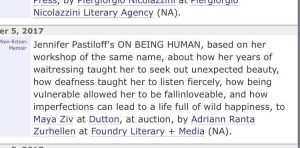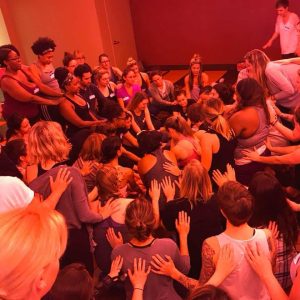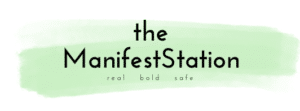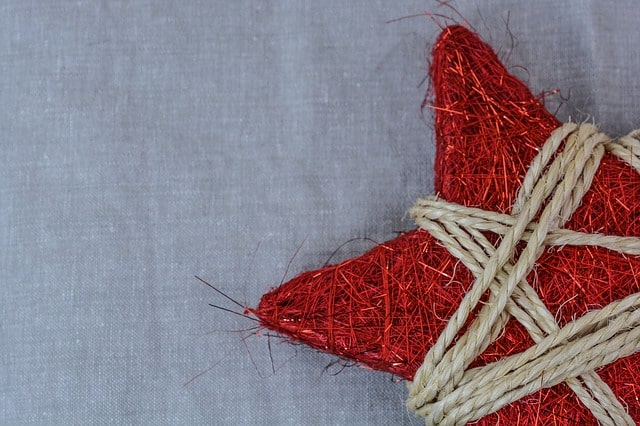By Barbara Solomon Josselsohn
How do I know if I should say Merry Christmas? Do I ask people about their religion so I can buy the right wrapping paper? What do I give my building’s super? My daughter’s swim coach? My son’s piano teacher?
It’s Thursday morning in early December and I’m seated with two other volunteers in a small classroom in a church, fielding holiday questions from young Asian moms who are new to this country. Their husbands have blended into their new surroundings easily, their professional positions offering plenty of opportunities to perfect their English and engage with American co-workers and clients. The same goes for their children, who pick up English quickly and bond seamlessly with schoolmates, the way young kids often do. It’s different, though, for my students, whose chances to connect with their American counterparts are limited to fast-paced PTA meetings and brief, spontaneous encounters at the supermarket. Learning English is hard, but even more difficult is mastering the labyrinth of customs, routines and traditions that American moms navigate daily with ease.
What’s Lyme Disease? What’s a bar mitzvah? Who’s St. Patrick? What’s a knish? My students are ambivalent transplants who came here for their families, each one knowing that her own preferences could never outweigh the lifestyle that her husband’s lucrative career move to America would provide. The women feel stranded, each caught with one foot clinging desperately to the receding boat of her former life, and the other feeling around tentatively for a safe dock on which to land. As a volunteer teacher, I aim to stay dispassionate, as I know that my students need information and skills far more than they need my sympathy. I want them to succeed. I want them to feel at home.
How do you get to Disneyland? Where’s Miami Beach? What’s the best way to New York City? What do American kids do in the summer? My colleagues and I specialize in practical advice, reeling off lists of helpful websites for vacations and activities. Even wistful questions—Where can I see cherry blossoms like the ones back home?—elicit practical information, such as online guides to nearby gardens. But inevitably some moms speak of beloved customs they miss, such as making paper doves for those who are ill. And when that happens I abandon the lists, and assure them that paper doves would cheer American friends too.
And as much as I talk, I listen—and I revel in my students’ steadily increasing confidence. I applaud the mom who tells me she navigated the wilds of the Dunkin’ Donuts menu and ordered—in English!—three dozen Munchkins for her son’s school party. I congratulate the woman who brought her car to the mechanic and effectively expressed that she needed a brake job. I sympathize with the mom who missed a medical appointment because she didn’t understand the email the medical center sent. And then I help her strategize how to reschedule.
But most of all, I watch with admiration as my students bravely embrace their main task—to turn house into home, street into community, a sea of anonymous faces into a circle of friends. I see them put aside their embarrassment, as they struggle to pronounce letters that don’t come naturally from their lips. And as they forge ahead, I realize that they, my students, have lessons to teach me, too.
They teach me to reach out for help, and to accept that help graciously. They teach me that community is a great cure when you’re feeling lonely or lost. These are lessons that touch me deeply. Like my Asian students, I am in transition, too. My youngest child left for college last fall, following in the footsteps of her two older siblings. The house is quieter now, and I am feeling unmoored. I need community just as my students do.
At the end of the year, the young moms plan a school-wide cultural arts festival, which includes a rendition of “Twinkle, Twinkle Little Star” in English, Spanish, Japanese, Chinese, and American Sign Language. When they get to the signing, they raise their arms and point to imaginary stars that bathe the night sky, enveloping the universe and inspiring wonder and awe.
Now, that’s a message we all can embrace.
Barbara Solomon Josselsohn is a novelist and freelance writer specializing in articles and essays about home and family. Her work appears in print in Consumers Digest, American Baby, Parents Magazine, The New York Times, Writer’s Digest, BrainTeen Magazine, and Westchester Magazine, among other publications. Online, her work can be seen on GrownandFlown.com, Road2College.com, and BrainChildMag.com.
Her novel, The Last Dreamer, was released by Lake Union Publishing a little over a year ago. Barbara can be found online at www.BarbaraSolomonJosselsohn.com.
We are proud to have founded the Aleksander Fund. To learn more or to donate please click here. To sign up for On being Human Tuscany Sep 5-18, 2018 please email je*******************@***il.com.





The author provides an essential service for Asian Moms new to the USA. She talks and listens which makes her role a two way street. She has learned from them. The article demonstrates simple things we take for granted can be a momental task for those new to our culture. Loved the article!